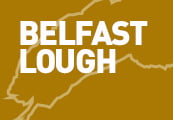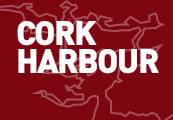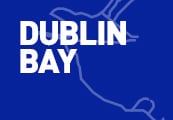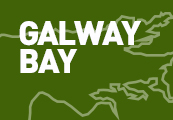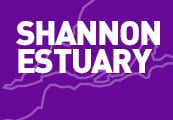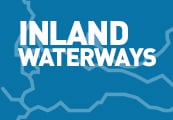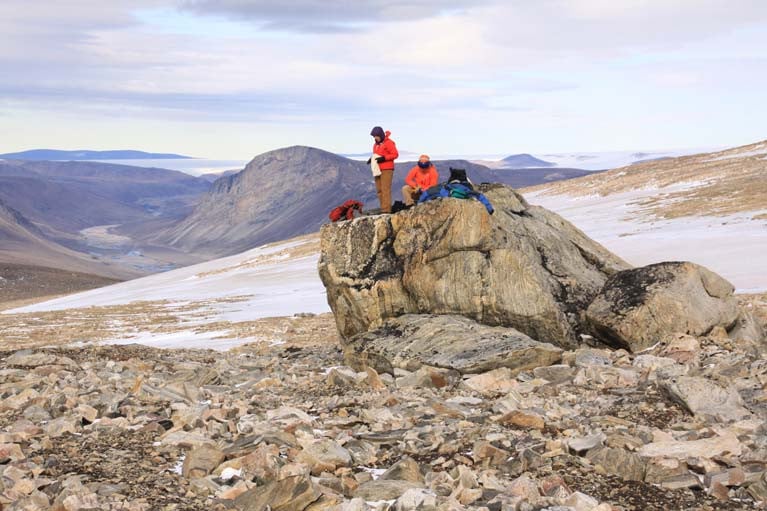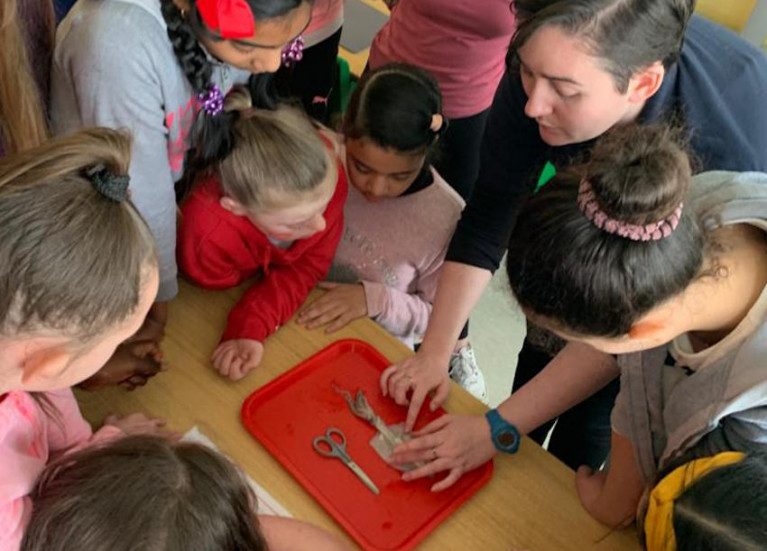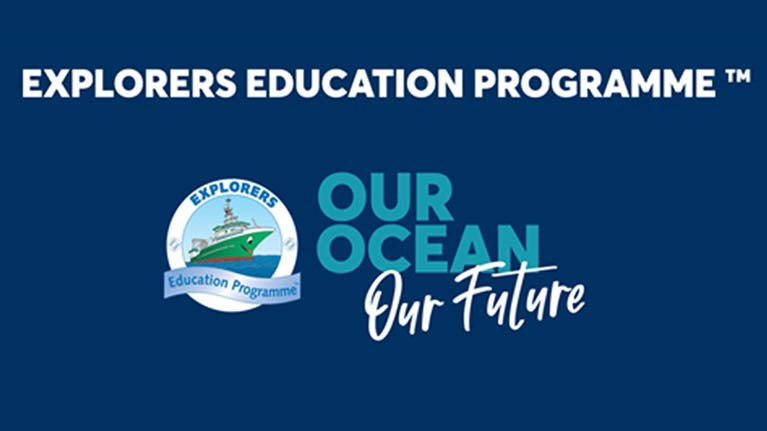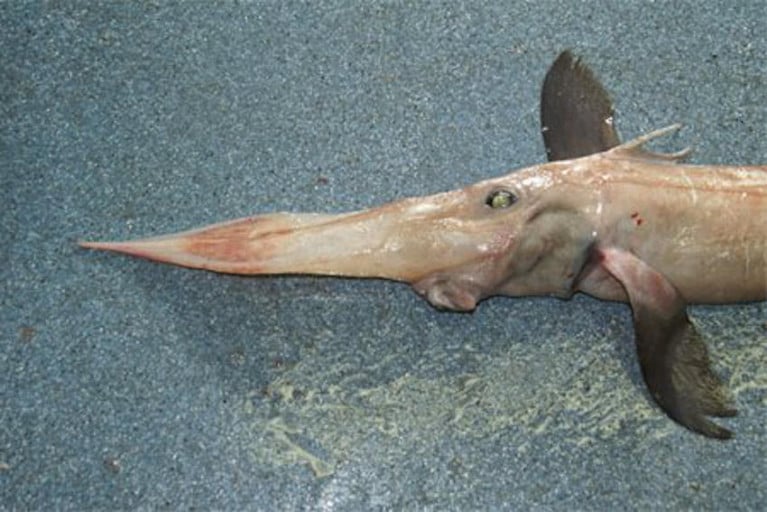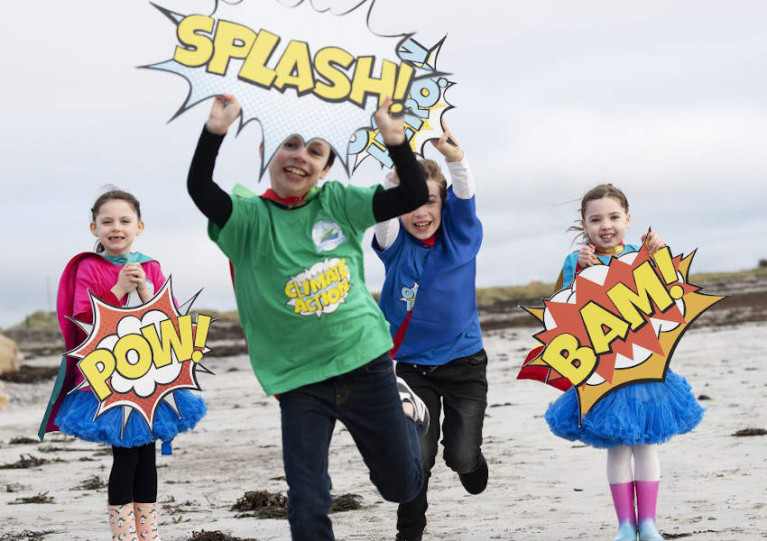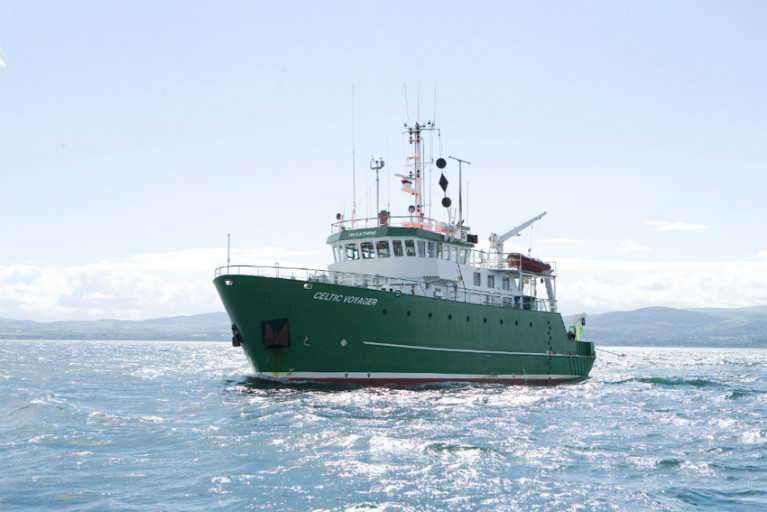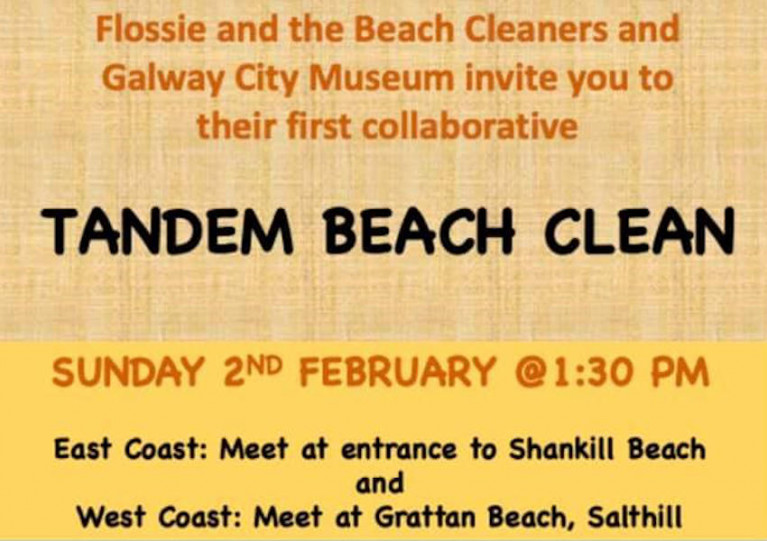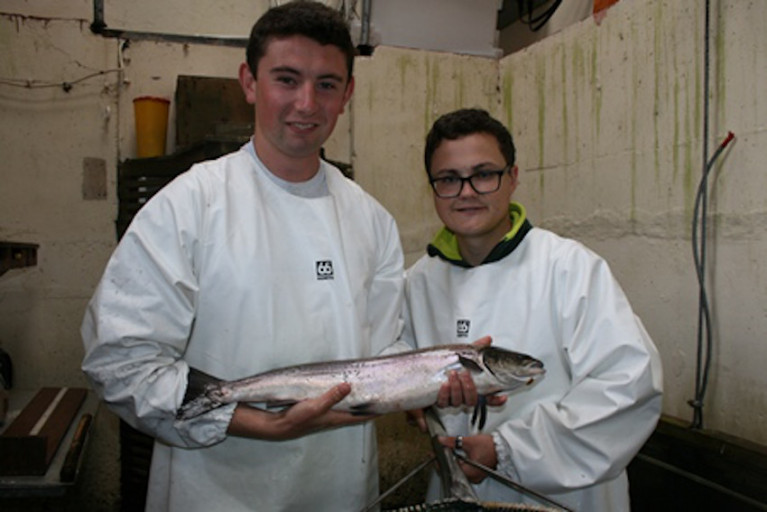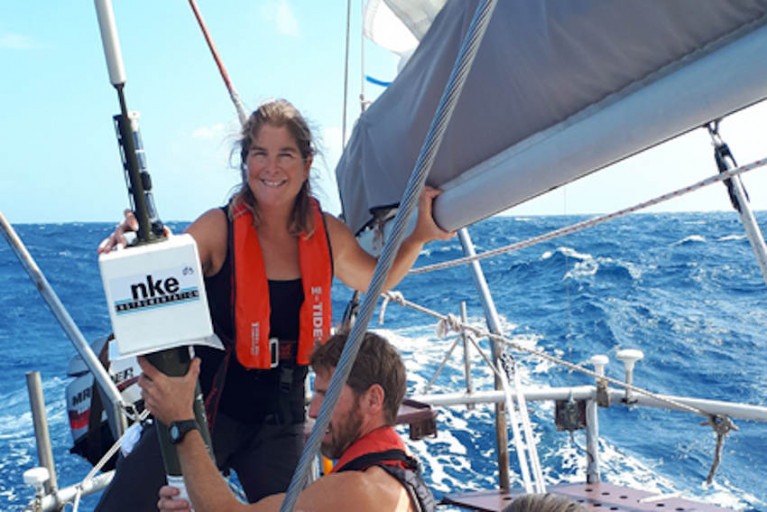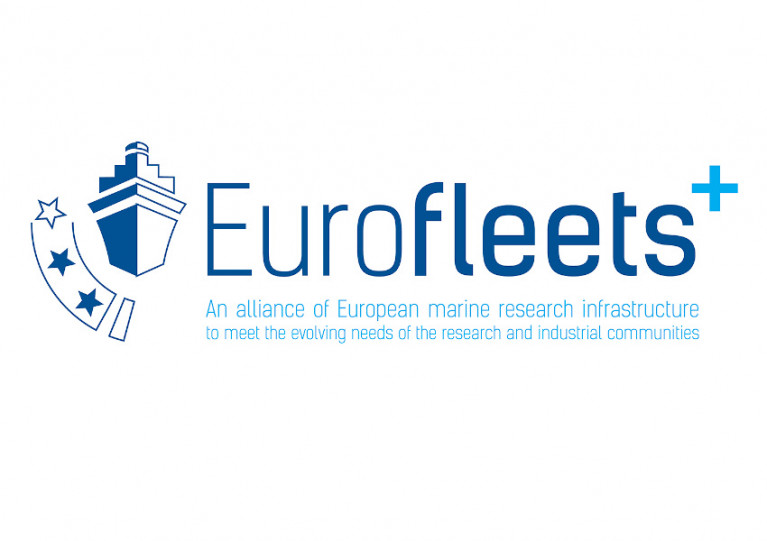Displaying items by tag: Marine Institute
Arctic Researchers Network for Ireland
The Marine Institute in collaboration with the Department of Foreign Affairs and Trade launched the Network of Arctic Researchers in Ireland (NARI) last Friday.
NARI aims to create, maintain and develop an informal all-island network of Arctic researchers in Ireland to facilitate the collaboration of scientific activities linked to the Arctic, and to provide independent scientific advice to the public and policymakers.
Irish sailors have voyaged to both the Arctic and Antarctic in recent times. Last Summer Gary McMahon's restored Ilen project went to Greenland and the Arctic circle. Jamie Young’s Frers 49 exploration yacht Killary Flyer from Ireland's west coast travelled to the Arctic in 2013 and 2019. And this year Round the World Sailor Damian Foxall led a mission to Antarctica.
According to the IPCC Special Report on the Ocean and Cryosphere, the extent of Arctic sea ice is declining and is getting thinner. Glaciers and ice sheets in polar and mountain regions are also losing mass, contributing to an increasing rate of sea-level rise, together with expansion of the warmer ocean. Sea level rise will increase the frequency of extreme sea-level events and warming oceans are disrupting marine ecosystems.
With significant demand for greatly enhanced knowledge and services to observe the changes in our oceans, NARI aims to enhance collaboration and promote Irish-based Arctic research activities, seek international polar cooperation and support the next generation of Arctic scientists.
President of NARI, Dr Audrey Morley of National University of Ireland, Galway said, “The coordination of research efforts on a regional, national and international scale is becoming increasingly urgent in order to address the emerging environmental and societal pressures on the Arctic region, which are of global significance. NARI will support a greater scientific understanding of the Arctic region and its role in the Earth system.”
Dr Audrey Morley will be leading a survey on the Marine Institute’s marine research vessel the RV Celtic Explorer later this year to improve our understanding of marine essential climate variables in the Nordic Seas. The Marine Institute is providing ship-time funding for this research survey and funding Dr Audrey Morley’s Post-Doctoral Fellowship (Decoding Arctic Climate Change: From Archive to Insight) in support of improving our understanding of Arctic climate change and ecosystems.
Dr Paul Connolly, CEO of the Marine Institute said, “As an Arctic neighbour, Ireland is exposed to the effects of a warming ocean, such as rising sea levels, increasing storm intensity and changing marine ecosystems. Scientists based in Ireland can make a real and meaningful contribution to Arctic research, and help to develop and implement adaptation responses from local to global scales. The Marine Institute is delighted to be supporting a network which will foster impactful research into the causes, manifestations and impact of Arctic change.”
Since 2018, the Embassy of Ireland in Oslo and the Marine Institute have sponsored early career researchers to attend the Arctic Frontiers Emerging Leaders. It is an annual program held in Tromsø, Norway, which brings together approximately 30 young scientists and professionals from around the world with interests in Arctic security, Arctic economy and Arctic environment.
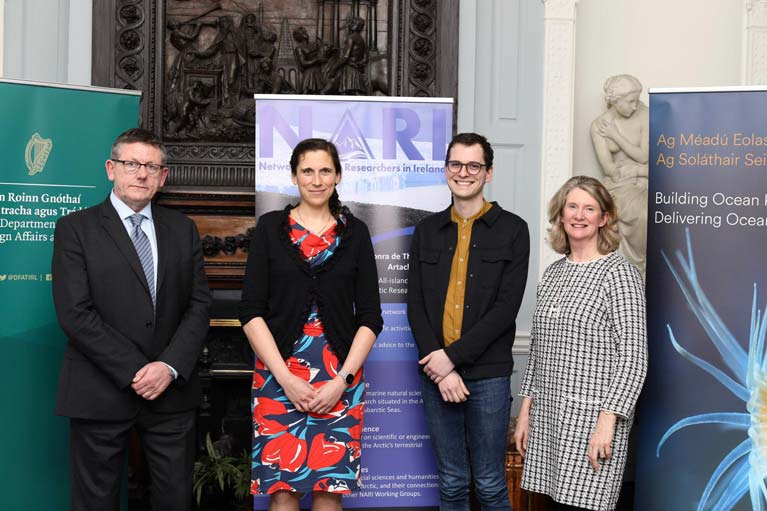 The Marine Institute and Dept Foreign Affairs have launched an informal Arctic researchers network
The Marine Institute and Dept Foreign Affairs have launched an informal Arctic researchers network
Ciara Delaney, Regional Director at the Department of Foreign Affairs and Trade, said: “The Department of Foreign Affairs is delighted to host today’s round-table meeting of Irish-based Arctic researchers. Given the impact of climate change and the increasing relevance of strategic developments in the Arctic, the Arctic region is of growing importance to Ireland. A previous roundtable meeting in 2019 demonstrated considerable interest for the establishment of a national network of researchers to identify and take forward areas of common interest on Arctic issues. Building on this initiative, we are delighted to officially launch the new Network, together with the Marine Institute of Ireland. I hope that NARI can contribute to developing a strong, research-led, evidence base for Ireland’s growing engagement with the Arctic region.”
The new all-island network (NARI) brings together multidisciplinary scientists from the National University of Ireland Galway, the University of Limerick, the National Maritime College of Ireland, Cork Institute of Technology, Queens University Belfast, National University of Ireland Maynooth, University College Dublin, Trinity College Dublin and University College Cork.
Explorers Education Programme Is Loving The Ocean On Valentine’s Day
Global Action Plan Ireland and the Irish National Sailing & Powerboat School (INSS) shared their love for the ocean on Valentine’s Day with primary schools in Ballymun and Dun Laoghaire as part of the Marine Institute’s Explorers Education Programme.
With a Master’s degree in Marine Sustainability and a passion for sharing her love for the ocean, Eimear Manning, education officer with Global Action Plan Ireland, started an Explorers marine science project with over 25 children from Virgin Mary GNS in Ballymun, North Dublin.
Beginning this week, they will be exploring everything from plankton to sharks, and how climate change effects all creatures in the sea. Sharks are a speciality of Eimear’s, who joins frequent expeditions in Florida to tag and collect data on sharks off the Miami coast.
“I am really excited to be involved in the Explorers Education Programme and having their support providing clear objectives of how to increase marine engagement and ocean literacy in schools in Ireland,” she said.
“Having also recently represented Ireland at the All-Atlantic Ocean Research Forum in Brussels as an All-Atlantic Youth Ambassador has highlighted the importance of children engaging in our ocean.
“The involvement of youth in addressing how we enjoy and use our ocean resources helps to ensure we are better equipped to look after our environment now and into the future.”
Also involved in the pilot outreach training is Muriel Rumball from INSS, who brings a wealth of expertise to the team where she has been involved in teaching children about all aspects of the ocean, from marine recreation to formal education.
Running a seashore safari with students from Glenageary Killiney National School, Muriel highlighted the value of teaching children about the marine on the curriculum.
“I have worked with children for many years both in and out of school and it is extremely important that we give children the opportunity to extend their education relating to environmental care outdoors,” she said.
‘Exploring the seashore at our doorstep is key to ensuring we learn to truly value, love and engage with the ocean in a positive way’
“Sharing and seeing children touch, feel and smell the ocean as well as exploring the seashore at our doorstep is key to ensuring we learn to truly value, love and engage with the ocean in a positive way.”
Recently selected to take part in Explorers pilot training, the teams — along with four other outreach centres from Louth, Wexford and Limerick — took part in a three-day workshop in Galway run by Dr Noirin Burke of Galway Atlantaquaria and Cushla Dromgool-Regan of the Camden Education Trust.
“The training programme provided an excellent introduction for outreach centres wanting to learn more about how to introduce concepts of ocean literacy onto the curriculum, as well as support key aspects of the UN Sustainable Development Goals, with a particular reference to climate action and the ocean,” said Cushla, who is responsible for the strategic development and management of the Explorers Education Programme.
Welcoming the opportunity to support new centres and expand the Explorers reach around the country, Dr Burke added: “Initiatives like this help build on the success of the Explorers programme who have been working with primary schools for over fourteen years.
“We are delighted to be able to share our knowledge with the centres as well as help develop a stronger network of marine outreach professionals throughout Ireland.”
Dr Paul Connolly, chief executive of the Marine Institute, congratulated the Explorers training team and the centres in taking part in the pilot outreach training programme.
“Developing marine outreach that can support teachers in classrooms is key to ensuring children receive a unique experience of learning and engaging with the ocean,” he said. “In turn, this helps to equip children in becoming ocean leaders and marine champions of the future.”
For more information about the Explorers Education Programme see www.explorers.ie
Marine Institute’s 'Explorers Education Programme' Arrives in Dun Laoghaire Harbour
The children from Glenageary Killiney National School (GKNS) are participating in the Marine Institute's Pilot Explorers Education Programme™, hosted by the Irish National Sailing & Powerboat School in Dun Laoghaire this Friday. The programme complements the national school curriculum, presenting children with a deeper understanding of the impact of our ocean, climate change, conservation and a deeper understanding of living things that abound our shores. This programme is a pilot programme funded by the Marine Institute.
‘The children of 5th class in GKNS are delighted and excited to be taking part in this pilot programme, especially this year, as it is very relevant to our attempts to achieve the Green School Biodiversity Flag’ reports Ms Yates, class teacher of fifth class.
The children will participate in a sea safari on the beaches of Salthill and Sea Point in Dun Laoghaire examining marine life and studying the conservation aspects of the shoreline. They will discuss and debate ocean literacy and plan individual and group projects on their findings.
Fifth class hope to participate in The Marine Institute's Explorers Super Hero Pop Art & Creative Writing Competition which was launched by the Marine Institute on the 27 January and is open to all primary schools.
Workshop Aims To Map Deepwater Sharks In North-East Atlantic
Experts in shark biology, data and mapping recently met at the Marine Institute’s headquarters in Oranmore, Co Galway to map the distribution of deepwater sharks, skates and chimaeras in the North-East Atlantic Ocean.
Scientists and marine experts at the International Council Exploration of the Seas’ (ICES) WKSHARKS Workshop analysed decades of data from research surveys in the North Atlantic Ocean.
This included nearly 30 years of data collected by Irish scientists on board the Marine Institute’s RV Celtic Explorer and commercial vessels.
The WKSHARKS Workshop included experts from Ireland, the United Kingdom, Portugal, France and Denmark, with other experts contributing remotely from Norway, Iceland and the Netherlands.
And their aim was to produce maps that indicate the area and depth of 25 species of deepwater sharks, skates and chimaeras — information that will assist in understanding the range and habitat of these marine wildlife species, underpinning future management decisions.
It will also be considered by the Convention for the Protection of the Marine Environment of the North-East Atlantic (OSPAR) and the North-East Atlantic Fisheries Commission (NEAFC) to determine future action to sustainably manage these populations.
These two organisations have a joint interest in the open North Atlantic, while ICES scientists have unique knowledge of the deepwater fisheries and species in this area, which focuses on waters off Ireland, Portugal and Iceland.
Maurice Clarke, fisheries scientist at the Marine Institute and WKSHARKS Workshop chair, said: “Sharks and rays have an important function in maintaining balanced and healthy marine ecosystems. Providing scientific advice is essential to protecting these marine species in the North-East Atlantic.
“For many of these species, this is the first time that data from European surveys is being collated and analysed for this purpose.”
Irish waters are home to 71 species of sharks, skates, rays and chimaeras. These species include some of the latest maturing and slowest reproducing of all vertebrates, resulting in very low population growth rates with little capacity to recover from overfishing and other threats such as pollution or habitat destruction.
ICES received a joint request from the Convention for the Protection of the Marine Environment of the North-East Atlantic (OSPAR) and the North-East Atlantic Fisheries Commission (NEAFC) to develop distribution maps of deep-sea sharks, rays and skates, and also to advise on methods of mitigating bycatch of these species.
Primary school children across Ireland are being invited to use the power of their imagination to save the ocean from climate change in a new art and writing competition.
The Explorers Pop Art & Creative Writing Competition was launched earlier this week by the Marine Institute’s Explorers Education Programme.
“By bringing science, art and creative writing together, the aim of the ‘ocean superhero’ competition is to cultivate the children's imagination, creating new ideas and solutions when addressing issues of environmental care and climate change,” said Cushla Dromgool-Regan, Explorers Education manager from Camden Education Trust who is co-ordinating the contest.
“The idea of creating an ocean superhero aims to help create a sense of hope for children at a time of adversity in the world, when the impacts of climate change can seem extremely challenging.”
The winners will see their art work and stories showcased as part of the Marine Institute exhibit at SeaFest, Ireland’s largest maritime festival, from 14-17 May.
A shortlist of VIP winning classes will be invited to visit the Marine Institute’s research vessel and its exhibition at Seafest, where they will get to meet world-leading speakers and scientists who are all working towards Ireland’s challenge in responding and adapting to climate change.
The Explorers Education Programme website has more information about the competition, including details of how to enter.
Open Call For 22 Marine Research Vessel Bursaries In 2020
The Marine Institute in collaboration with the Strategic Marine Alliance for Research and Training (SMART) is offering 22 bursaries on dedicated FEAS surveys throughout 2020 on the RV Celtic Explorer and RV Celtic Voyager.
Bursaries include groundfish, acoustic and underwater TV surveys (UWTV) on 13 survey legs between February and December of this year on the shelf waters of the Irish EEZ.
Successful applicants will receive a Student at Sea Bursary at a fixed rate of €95 per survey night.
Participants will receive hands-on training in data collection and sampling techniques, be fully integrated into the survey work programme and make an important contribution to achieving the survey goals for marine science.
In so doing they will gain valuable sea going experience and assist the Marine Institute in building the necessary capacity for offshore research and monitoring.
Applicants should be marine-oriented graduates, postgraduates, researchers or practitioners in marine-oriented enterprises. They must hold current ENG11 medical and Personal Survival Techniques (PST STCW95) certificates, and should have some prior sea-going experience.
Further information on the available bursaries can be found on the SMART website, which also has details of the online application process.
Ireland’s East and West Coasts will compete to collect the most marine litter in a simultaneous beach clean this Sunday 2 February.
The Tandem Beach Clean is being organised by Galway City Museum along with Flossie and the Beach Cleaners, an initiative formed by 12-year-old coastal litter crusader Flossie Donnelly who will be no stranger to Afloat.ie readers.
Volunteers will gather at Grattan Beach in Salthill, Galway and Shankill beach in Co Dublin from 1.30pm this Sunday, and both sides will link up virtually at 2.30pm to compare how much rubbish they’ve collected, as well as the highest number of plastic bottles and tin cans.
There will also be a competition for the oldest item picked up along the shore, and a prize for the most unusual find.
Speaking about the event, Flossie said: “We are so excited that Flossie and the Beach Cleaners, Galway City Museum and the Marine Institute will be taking part in the very first ‘virtual beach clean’.
“Month by month the charity will be organising virtual beach cleans around the coast of Ireland until we have a national virtual beach clean. We are delighted that Galway City Museum and the Marine Institute will be joining us for this exciting event. The East meets the West!”
Harriet Dundon, a Marine Institute graduate intern at Galway City Museum, added: “We are becoming more aware of plastic waste in our ocean, and beach cleans are one way we can help make a difference.
“The museum is delighted to be involved in this national event to raise awareness about marine litter and be the first collaborators with Flossie and the Beach Cleaners on the West Coast.”
Galway City Museum hosts the Marine Institute’s exhibition, Sea Science — The Wild Atlantic, the first of its kind in the country, as previously reported on Afloat.ie.
To take part in either beach clean this Sunday, simply turn up on the day — participants will be provided with equipment for rubbish collection and are encouraged to wear appropriate clothing and footwear.
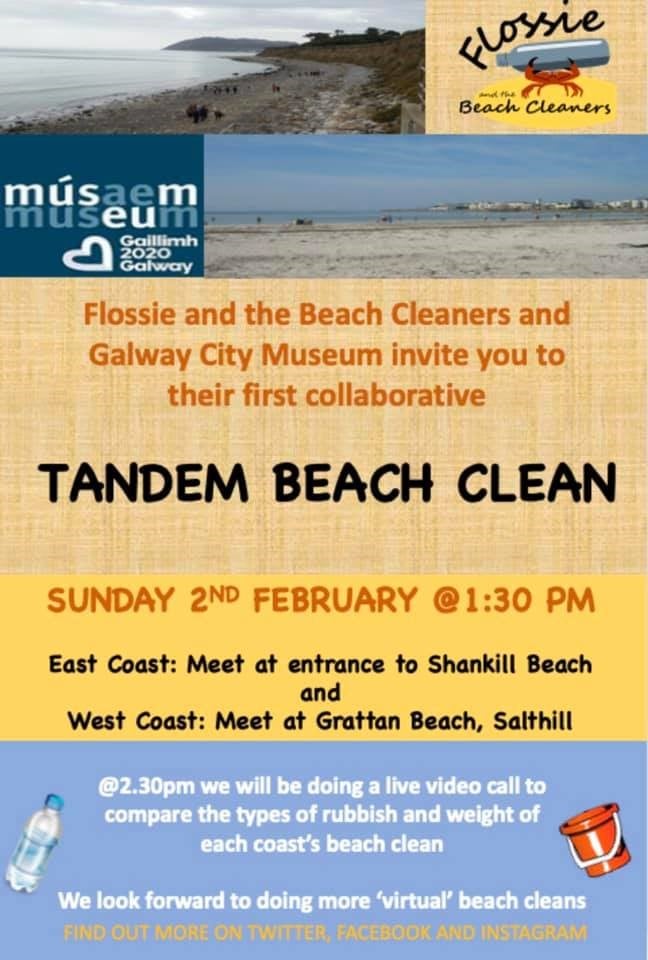
Students Invited To Apply For Marine Institute’s 2020 Bursary Scholarship Programme
The Marine Institute is inviting marine science undergradutes to apply for a number of work experience placements as part of the 2020 Summer Bursary Scholarship Programme.
In 2020, the programme will offer a number of eight- to 12-week placements for up to 22 undergraduate students.
The programme offers students practical experience in the areas of Marine and Freshwater Fisheries, Salmon Ecology, Environmental Data, Aquaculture, Oceanography, Data Visualisation, Benthic Ecology, Marine Chemistry and Marine Communications, and a new bursary position linking art and science.
The Marine Institute’s Bursary Scholarship Programme has been running for over 30 years, providing essential career development and support, and inspiring the next generation of marine scientists and experts.
A key initiative of the Marine Institute’s new Strategic Plan 2018-2022: Building Ocean Knowledge, Delivering Ocean Services, the programme equips third-level students with the skills to become ocean leaders and marine professionals of the future.
“As well as strengthening skills and knowledge, the Bursary Scholarship Programme enables students to make informed decisions early in their studies about the marine and maritime careers they would like to pursue,” said Helen McCormick, senior lab analyst and Bursary Programme co-ordinator.
“The programme provides undergraduates a unique opportunity to meet fellow students from other universities as well as work with experts in their field helping them form a future network in the marine sector.”
Successful students will receive a scholarship worth €275 per week for the duration of the work placement. Bursars will be based at various locations, including the Marine Institute headquarters in Oranmore Co Galway, the Newport Catchment Facilities in Co Mayo and other locations and ports around the country.
The Bursary Scholarship Programme is aimed at undergraduates of universities, institutes of technology and national institutes for higher education. To participate in the programme, undergraduate students must have completed two years of study in a relevant discipline by the beginning of June 2020.
The Marine Institute says it is committed to supporting a culture of high performance driven by our people, whose skills, experience and passion for the marine are central to the work we perform for government and other stakeholders.
To apply for the 2020 Bursary Programme:
- View the bursary titles available
- Select the two bursary positions that interest you the most and in order of preference
- Complete the application form and return it FAO Helen McCormick, Marine Institute, Rinville, Oranmore, Galway, H91 R673
The application deadline date is Wednesday 12 February.
Galway Family Deploys Argo Float In Atlantic Ocean
The Quinlan-Owens family from Galway gave the Marine Institute a helping hand recently when they deployed an Argo float in the Atlantic Ocean while sailing their yacht Danu.
Vera Quinlan, Peter Owens and their two children Lilian and Ruairi deployed the Argo float en route from Cape Verde to French Guiana as part of their 14-month sailing trip around the Atlantic from Galway to New York.
Vera is a hydrographer for INFOMAR, the national seabed mapping programme, which is jointly managed by the Marine Institute and Geological Survey Ireland.
Thanks to the Quinlan-Owens family from Galway for sharing this video of the deployment of a Marine Institute Argo Float in December.
— Marine Institute (@MarineInst) January 23, 2020
For more on this story please see - https://t.co/yWmgLbTLdD #marine #argofloat #ocean #data #research @EuroArgoERIC pic.twitter.com/5TXeTWZ9io
Argo floats are deployed across the world’s oceans to continuously monitor the ocean and provide essential data to help marine scientists understand oceanic conditions, interactions between the ocean and the atmosphere, as well as long-term climate trends.
The devices distribute real-time information on temperature and salinity up to a depth of 2,000 metres below the ocean's surface.
Measuring the temperature and salinity of the ocean is crucial in better understanding climate change and the role of our oceans on our climate.
Before departing on their sailing voyage in June last year, Lilian and Ruairi showed the Argo float to their classmates at Kilcolgan Educate Together National School. The pupils signed their names on the float, which is now in the Atlantic Ocean and collecting measurements on temperature and salinity.
Measuring the temperature and salinity of the ocean is crucial in better understanding climate change and the role of our oceans on our climate
This data is transmitted via satellite every 10 days for the three to four years of the float’s lifespan and its location can be tracked at digitalocean.ie.
Alan Berry, of ocean science and information services at the Marine Institute, says it usually deploys Argo floats on research surveys carried out in the North Atlantic.
“Vera’s sailing trip offered the opportunity for an Irish Argo float to be deployed much further south, near the equator. We thank Vera and her family for participating in the Argo programme, and to Lilian and Ruairi for sharing this experience with their classmates so they can also learn about the importance of monitoring our oceans.”
As part of the Marine Institute’s participation in the Euro-Argo ERIC programme, 20 Argo floats have been deployed by the Marine Institute in the North Atlantic over the last 10 years, with a sustained deployment of three Argo floats per year since 2015.
The international Argo Programme currently has a network of some 4,000 Argo floats taking measurements in the world’s oceans.
The story of Danu’s 2019-2020 Atlantic circuit will feature in W M Nixon’s up-coming Sailing on Saturday here
Marine Researchers Invited To Apply For EurofleetsPlus Programmes
EurofleetsPlus, the marine research consortium co-ordinated by the Marine Institute, is currently calling for applications from researchers for three programmes.
The first of these, the Ship-time and marine Equipment Application (SEA) Programme Call ‘Regional’, offers fully funded transnational access to 16 research vessels and six pieces of marine equipment to carry out ship-based research activities within any field of marine science.
Applications are welcome from international teams of researchers from academia and industry. Early career and female applicants are particularly encouraged to apply. This call will remain open for the submission of proposals until Tuesday 28 January.
Meanwhile, the Remote Transnational Access (RTA) Programme is providing researchers from all career stages with remote access to samples or data from EurofleetsPlus vessels.
And the Co-Principal Investigator (PI) Programme is specifically aimed at early career researchers, or researchers with no experience in leading a research cruise, to implement their own research together with experienced scientists in EurofleetsPlus scheduled cruises.
Applicants for the RTA and PI programmes are able to apply for all 27 state-of-the-art research vessels offered within EurofleetsPlus, including the RV Celtic Explorer. These programmes are both running calls, which allow the continuous submission of proposals until call closure at 31 January 2022.
For further information on funding conditions, eligibility criteria and application guidelines, visit the EurofleetsPlus website.
Co-ordinated by the Marine Institute, EurofleetsPlus is a unique consortium of research vessels, equipment and scientists supported by 42 marine institutes, universities, foundations and SMEs from 24 countries around the North Atlantic, Arctic, Southern and Pacific Ocean, Baltic, North, Mediterranean, and Black Sea.
EurofleetsPlus has received funding from the European Commission's Horizon 2020 Research and Innovation Programme under grant agreement No 824077.

